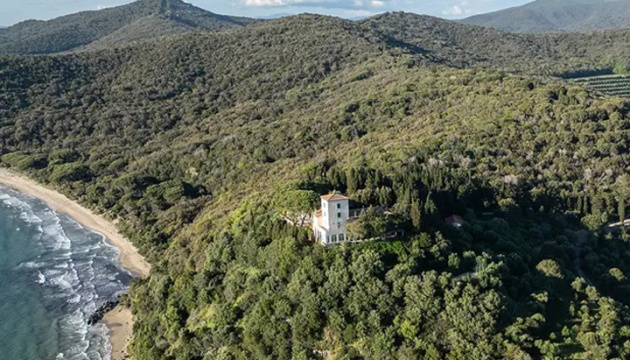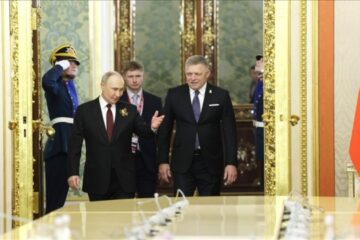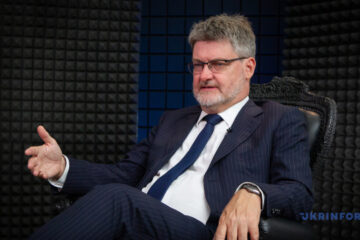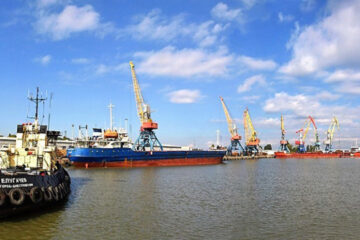Italian investigative journalists reveal schemes involving Russian Speaker Matviyenko and oligarchs
Independent Italian investigative journalists have uncovered illicit asset ownership schemes by Russian officials and oligarchs in Italy. Among the figures exposed are the Chair of the Russian Federation Council, Valentina Matviyenko, her son, sanctioned billionaire Konstantin Nikolayev, airport magnate Roman Trotsenko, and Dmitry Medvedev’s close associate Ilya Yeliseev.
Despite being under EU and Swiss sanctions, Matviyenko drew the attention of European media after arriving in Geneva on July 30 to attend the Sixth World Conference of Speakers of Parliament (EU delegations boycotted her address). Just days later, on August 1, Italian journalist Massimiliano Coccia published an investigation exposing her hidden villa in Italy.
Coccia, an investigative journalist who has been covering Kremlin kleptocracy and Putin’s violent policies since November 2015, prepares reports for national broadcaster Radio Radicale and other independent media.
“Today, I write for Linkiesta, a bold and independent newspaper led by Christian Rocca. For us, the Ukrainian people’s struggle has always been our own,” Coccia told Ukrinform in an exclusive comment.
In the article, the journalist describes illegal asset management schemes involving 76-year-old Valentina Matviyenko and her 52-year-old son.
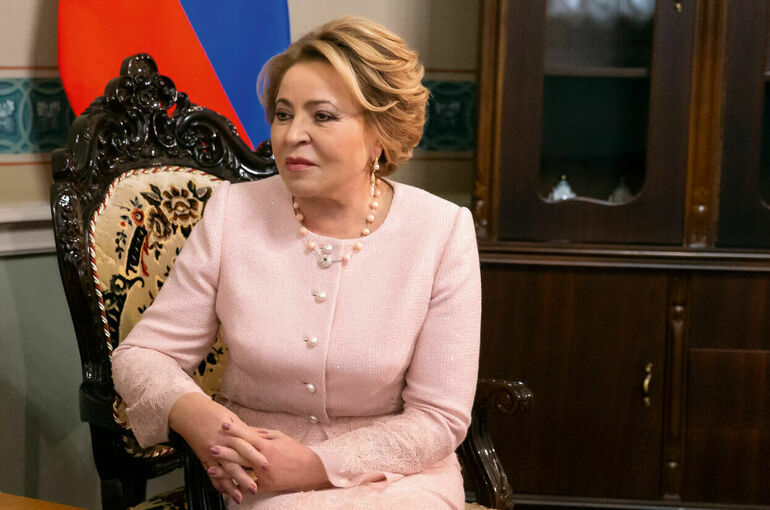
Valentina Matviyenko
MATVIYENKO AND HER SON LIVE ‘LIKE MAFIA BOSSES’
Matviyenko has been under U.S. sanctions since 2014 for supporting the annexation of Crimea, and under sanctions from the EU, UK, Switzerland, U.S., Canada, New Zealand, and Ukraine since 2022 for publicly endorsing Russia’s full-scale invasion of Ukraine.
Her son, Sergey Matviyenko, is sanctioned by the U.S., Japan, and Canada. In 1994, he was arrested in Russia for theft and serious bodily harm. Later, he was sent abroad, where he now acts as a Kremlin front man in Europe. According to Coccia, the Matviyenko family owns a luxury villa in the province of Pesaro and Urbino, purchased in 2009. Officially, the property is registered to an Italian legal entity, Fundazione Dominanta, which conducts no public, cultural, or charitable activities. The entity serves purely to conceal ownership. Coccia found that Matviyenko’s son has a tax ID for operating an IT business in Italy, allowing him to legalize his presence and access banks and services.
“What struck me most is the incredible impunity with which they carry out their economic and criminal activities. For them, the war never really started — they just keep doing business and living like mafia bosses. […] The Matvienko family uses a real estate fund with multiple holdings to evade sanctions and funnel illicit capital into Italy, with the complicity of the Russian honorary consulate in Ancona and the embassy. The authorities could seize and freeze these assets,” Coccia told Ukrinform.
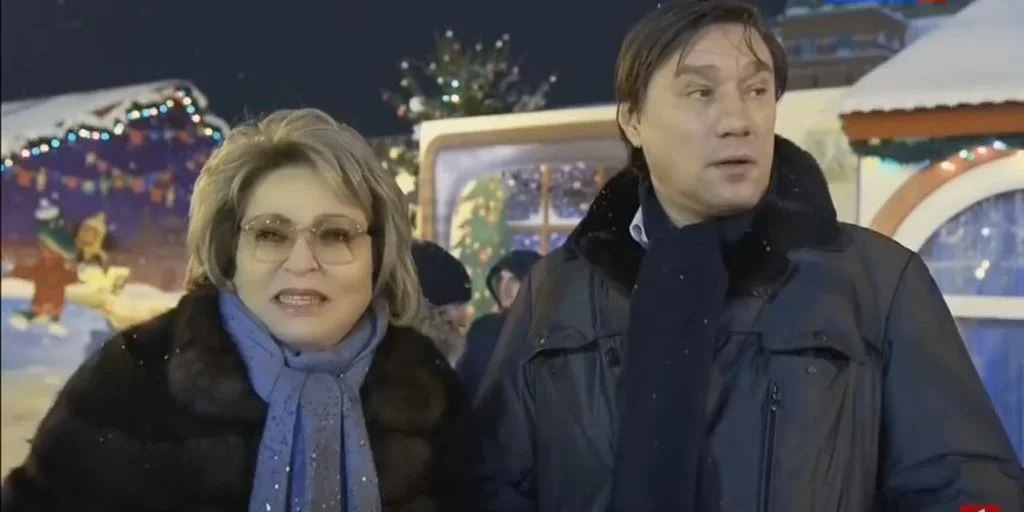
Valentina Matviyenko and her son Sergey
He added that this case highlights the ineffectiveness of personal sanctions. “Sanctions at the European level need to be updated, and bans should be automatically extended to the families of those who are sanctioned.”
Following Coccia’s publication, Italian senator Ivan Scalfarotto from the Italia Viva party announced on social media that he would raise the issue in parliament.
“Unbearable. Today I’ll ask the Interior and Foreign Ministers to explain how one of the highest-ranking Russian officials can enjoy a kind of free zone — a sort of extraterritoriality — in Italy,” he wrote.
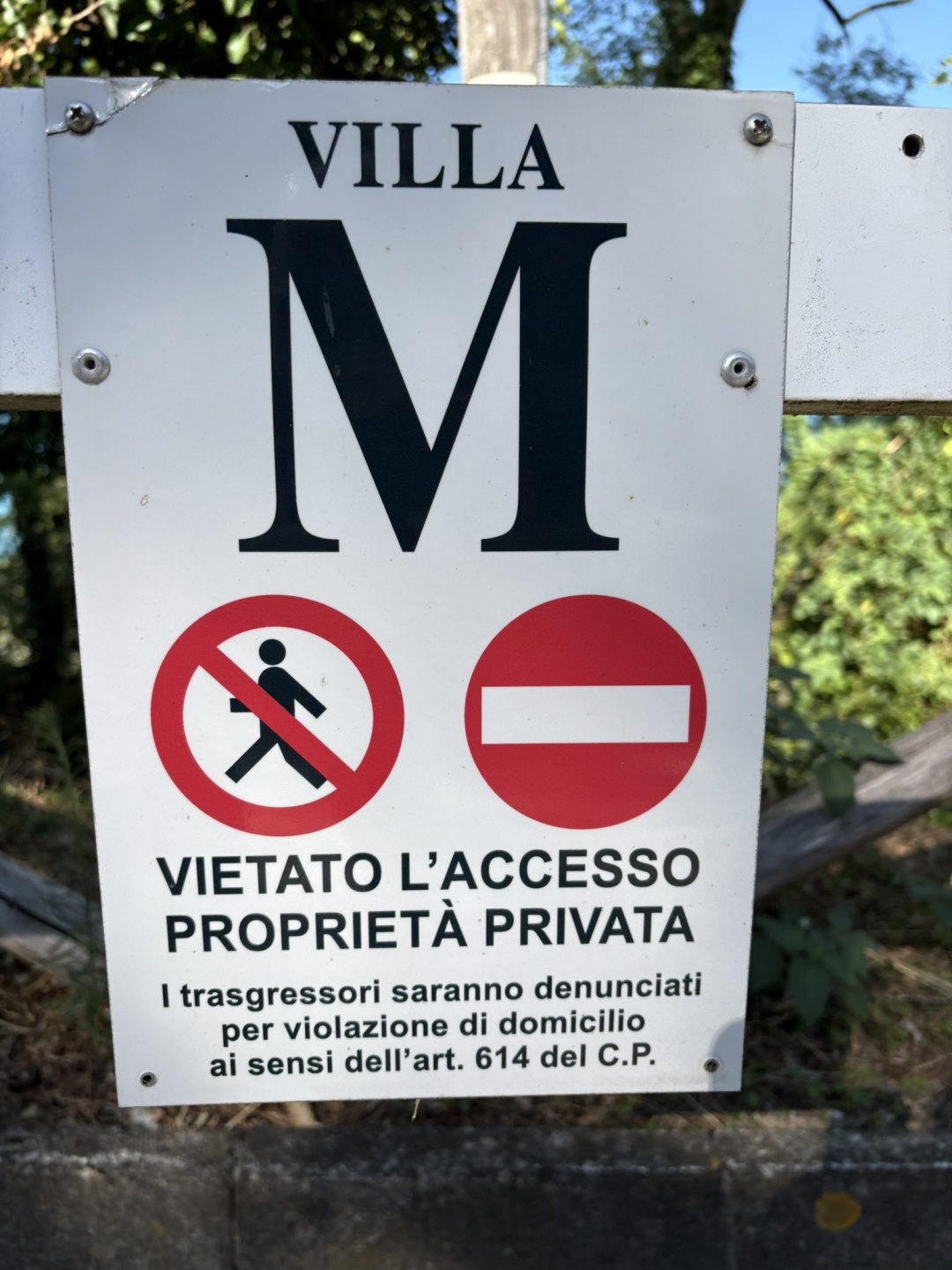
RUSSIAN ARMS DEALER BECOMES EU-SUPPORTED WINEMAKER
Matviyenko isn’t the only one. Other Russian oligarchs who openly support and finance Russia’s war also own property and run businesses in Italy. On July 30, journalist Edoardo Anziano published an investigation in IRPI Media revealing that several wineries in Italy are secretly owned by sanctioned Russians.
Anziano is a journalist and editor at the nonprofit cross-border investigative outlet IRPI Media, specializing in organized crime and corruption. Since February 2022, he has focused on sanctions, including loopholes for dual-use goods and Italian arms ending up in Russia.
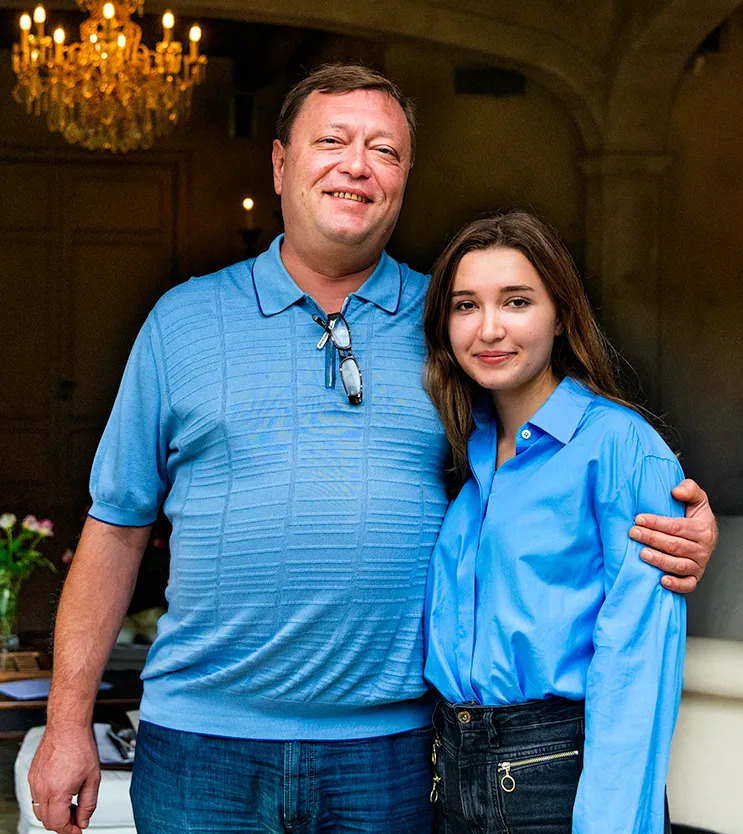
Konstantin Nikolayev / Photo: bolgheridoc.com
One such oligarch is 54-year-old Konstantin Nikolayev, whose wealth totals $1.2 billion. The EU sanctioned him in May 2025 for supplying arms for Russia’s war against Ukraine and funding mercenaries. His assets include the Tula Cartridge Works and Promtekhnologiya, a sniper rifle manufacturer sanctioned by the U.S. in May 2022.
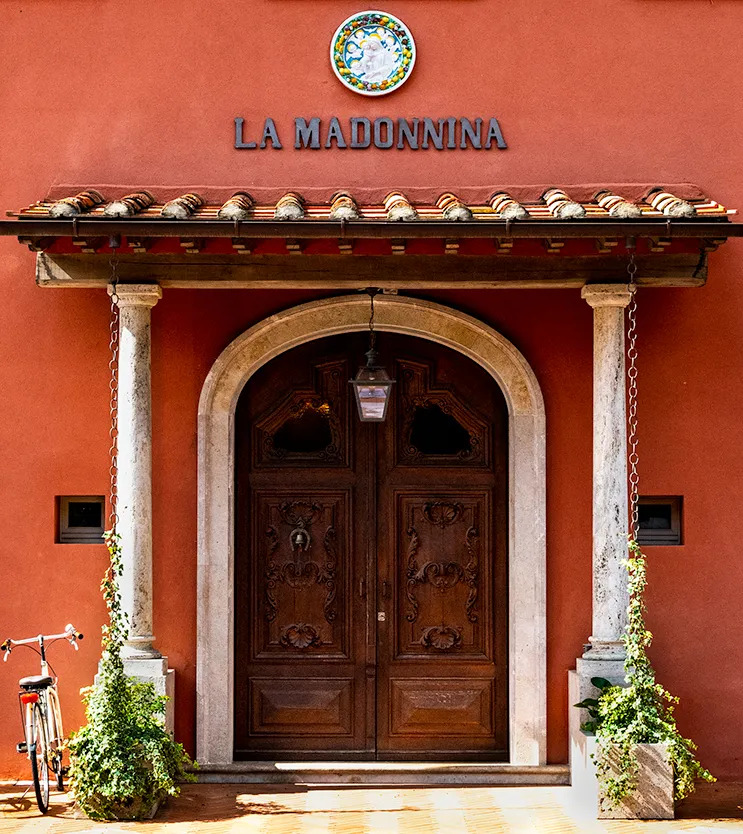
Anziano discovered Nikolayev effectively owns the La Madonnina winery in Livorno province, though documents list the Cyprus-registered Cetrezza Trading as owner. The winery received over EUR 100,000 in EU agricultural subsidies between 2017 and 2025.
“There has been a lot of debate in Italy about the presence of Russian oligarchs and the investments of Russian oligarchs in Italy. In some cases, there has been a debate about how much do we Italian taxpayers need to pay for the maintenance of, for instance, frozen yachts and villas and stuff like that? But I think this is the first time I’ve seen a debate on actually sanctioned Russian oligarchs actually profiting from public money directly in Italy,” Anziano said in an exclusive comment to Ukrinform.
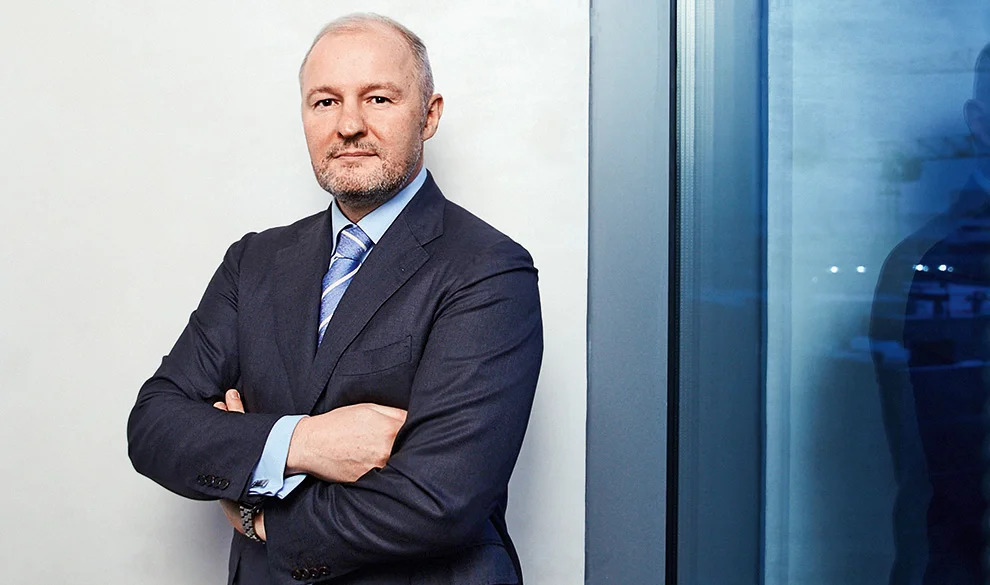
Roman Trotsenko
Another suspect figure is airport mogul Roman Trotsenko, sanctioned by the EU. Despite restrictions, he owns the Torre Civette winery estate in Grosseto province, which has received EUR 140,000 in EU funds over the past decade.
“Oligarchs quite easily changed the company structures. They moved, they changed jurisdiction. In some cases, we see from Cyprus company, which is still in the European Union, the shares moved to British Virgin Island company, which is a much more secretive jurisdiction. We see that assets are transferred from the oligarchs themselves to the wives and relatives. We see sons and daughters stepping in in the Italian company structures and those sons and daughters are not subjected to the European sanctions. Sometimes they’re subjected to UK and US sanctions. That’s the case of Gleb Trotsenko, who owns small shares in Porre Civette in Grosseto, but they are not subjected to European sanctions,” Anziano said.
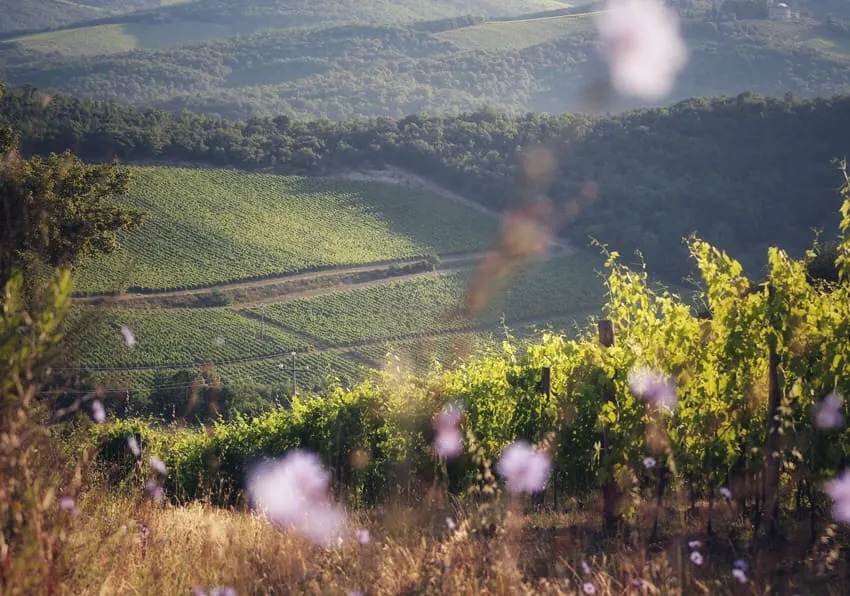
Fattoria della Aiola / Photo: aiolawines.com
Then there’s the Fattoria della Aiola winery, where the U.S.- and UK-sanctioned Ilya Yeliseev, a Medvedev ally, holds a minority stake. Officially, the estate is owned by an anonymous Cypriot entity.
Anziano contacted regulatory bodies like Italy’s National Anti-Corruption Authority (ANAC) and Financial Intelligence Unit (UIF), which found no formal violations.
“We only got replies from anti-corruption and financial authorities on the broad issue of how are we implementing controls on the resilience and recovery fund money being allocated. And in most cases, these authorities told us that, yes, in principle, sanctioned individuals could not benefit, of course, from European funds. But in some cases, and especially with foreign companies, these anti-corruption agencies in Italy are telling us that they are not able to assess who are the ultimate beneficial owners. And I think this is a rather technical issue, but it’s so crucial and it has a lot of political implications, if you want. So the fact that there’s still not, in Italy and in other European countries, and right now at a whole European level, there is not a registry of beneficial owners,” Anziano said.
He stressed that this loophole allows sanctioned Russians to exploit EU resources through opaque corporate structures.
“Whenever you don’t know who’s the beneficial owner, you’re not able to establish who’s actually benefiting from public money. And this applies regardless of sanctions. It’s a general rule for monitoring how public money is spent,” he told Ukrinform.
One of the public responses to his article came from Emiliano Fossi, an Italian MP and secretary of the Democratic Party in Tuscany. He submitted a formal inquiry to the government, calling for an investigation into Tuscan wineries linked to Russian oligarchs Konstantin Nikolayev and Roman Trotsenko.
“It is extremely serious that European agricultural funds could end up, even indirectly, in the hands of Russian entities subject to international sanctions,” Fossi said.
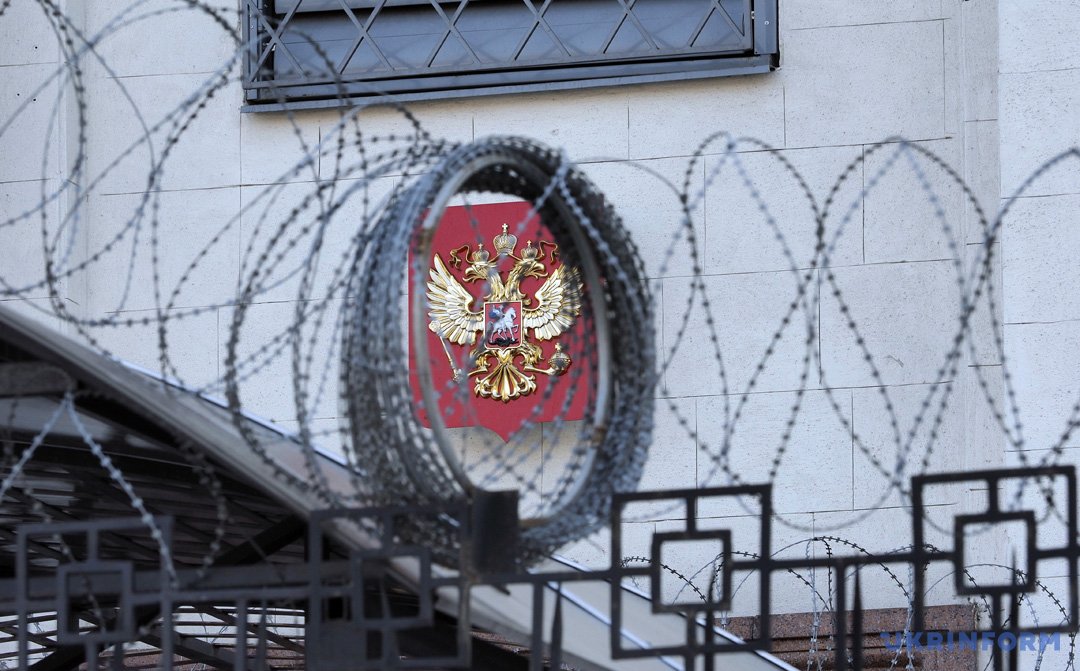
WHAT CAN BE DONE ABOUT THE LOOPHOLES?
Anziano told Ukrinform that after the EU enacted core sanctions in 2023, oligarchs simply adapted their corporate structures:
“I think this investigation really shows the gaps and the loopholes that are very easy to exploit if you want to keep your asset hidden from the authorities,” he said.
Professor Alessandro Sterpa, a public and EU law expert at Universita della Tuscia, said in an exclusive comment to Ukrinform that assets can be frozen if a link between the sanctioned person and the property can be proven.
“The freezing of assets can only take place if the person or entity is on the list of subjects affected by the sanctions. If an entity is not on the list, in any case the investigative activity (in particular the Guardia di Finanza) can verify the existence of a link between the person subject to measures and the entity. The typical example is that of the boats that often fly the flag of Costa Rica rather than Panama and are of entities placed there. In any case, the investigation activity can verify whether the goods are in the factual availability (riconducibilita’ in italiano – traceability) of a sanctioned subject. If the link is proven, the government can apply the sanction to the entity, the company or the good,” he said.
He added that, in accordance with rule of law, even sanctioned individuals can challenge asset freezes in court.
“We are not the Russian autocracy! We allow everyone to defend their rights! If the judge confirms the connection, you can act by freezing the asset,” Sterpa said.
In theory, he said, the assets could even be sold after a judicial ruling:
In his opinion, following a court ruling, the assets of sanctioned individuals like Matviyenko could not only be frozen but also sold.
“In theory, the goods are not confiscated definitively but the road could be followed with an agreement between all European countries. With a new regulatory framework, the disposal of assets could be considered as retaliation of expenses or third parties for the benefit of the reconstruction of Ukraine. On the other hand, the Russians are hitting infrastructure and private assets that are not always considered legitimate,” he said.
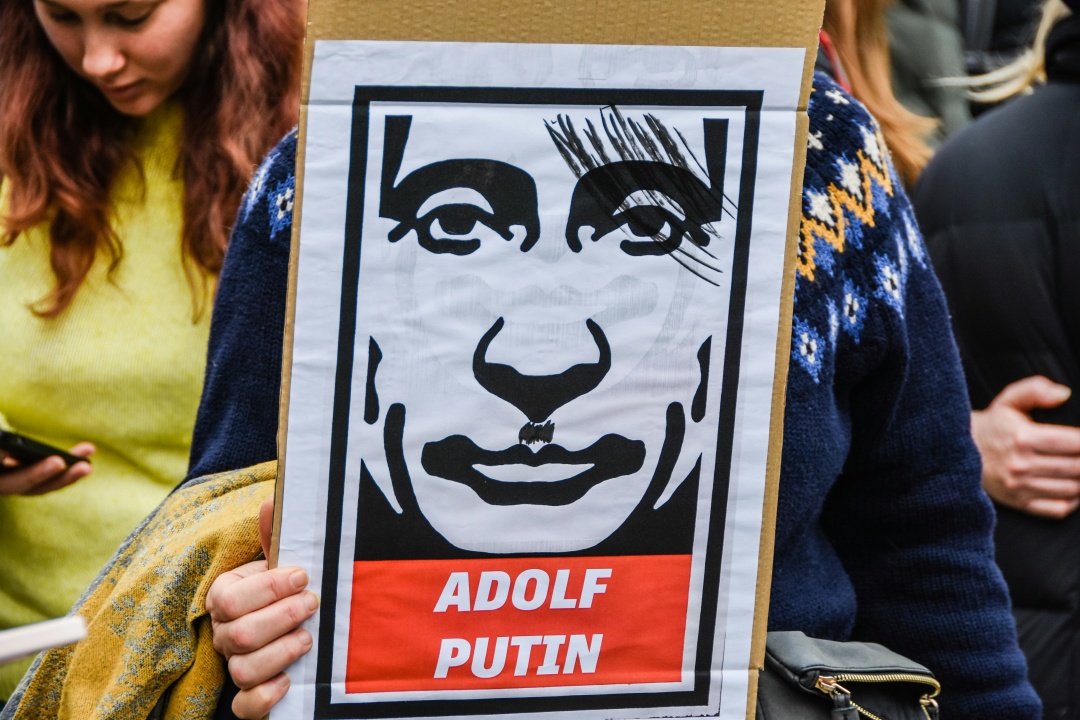
Photo: unsplash
Journalist Massimiliano Coccia hopes his article leads to stronger sanctions against Putin’s allies and their families.
“I believe the European Commission must take a bold step forward. It’s not enough to sanction companies or assets; the grip must tighten around Putin’s inner circle and their families,” he said.
Coccia said that the investigation into illegal schemes through which Russian oligarchs not only own property but also conduct business via proxy individuals remains on the agenda. The same applies to so-called cultural figures who are, in reality, conduits of Russian propaganda.
“In Italy, we’re overwhelmed by the Kremlin’s pervasive propaganda, but with courage, we’ve managed to bring many critical issues to light. Take the case of Gergiev’s concert, for example. Our investigations exposed a web of corruption in the world of opera and its ties to Russia,” he said.
Anna Kostiuchenko, Kyiv
First photo: torrecivette.it

